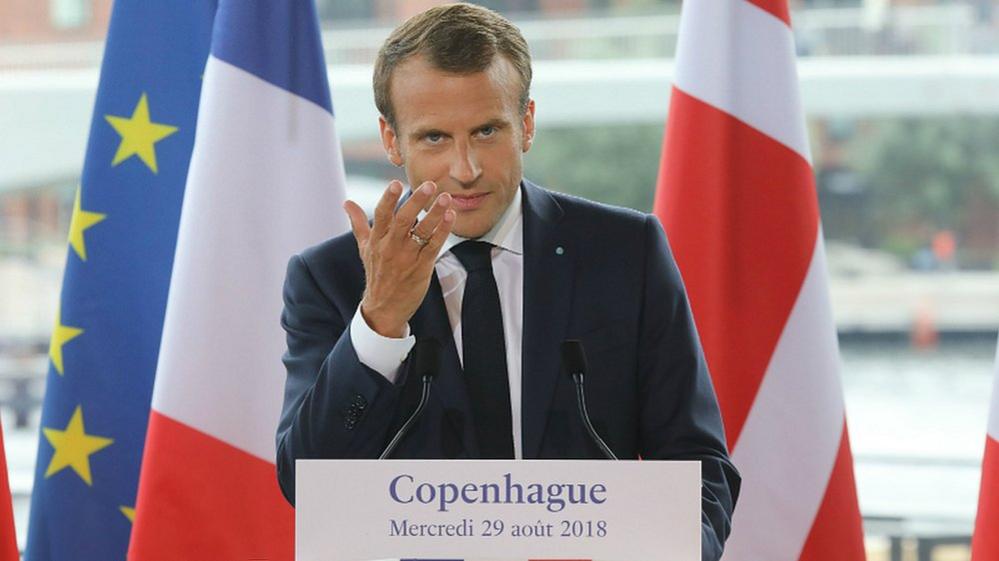Yellow vests: Hundreds injured as France fuel protests continue
- Published
Thousands march in France over diesel tax
Demonstrations in France over rising fuel prices have left more than 400 people injured, officials say, as protests spilled into a second day.
The French interior ministry said that nearly 300 protesters were questioned, with 157 among them taken into custody.
Some 288,000 people took part in Saturday's protests, the ministry said, with scores under way on Sunday.
The demonstrators, known as the "yellow vests", have been setting up roadblocks across France.
Many turned their anger on President Emmanuel Macron, who they accuse of being out-of-touch. He is yet to comment on the protests, and has seen his popularity slump in polls.
The president came to power last year vowing to overhaul the French economy and argues the hikes are needed to wean the French people off fossil fuels.
The government has announced a number of measures to help poorer families pay their energy and transport bills.
But support for the protests appears broad. Nearly three-quarters of respondents to a poll by the Elabe institute backed the Yellow Vests and 70% wanted the government to reverse the fuel tax hikes.
What happened in the protests?
Demonstrators took to the streets at more than 2,000 locations across France on Saturday, according to the interior ministry.
Most protests passed peacefully but at some places tempers flared and drivers tried to force their way through the roadblocks.
In the worst incident, a female protester died after a driver surrounded by demonstrators panicked and accelerated.
The driver has been charged with manslaughter and released on bail, prosecutors said.
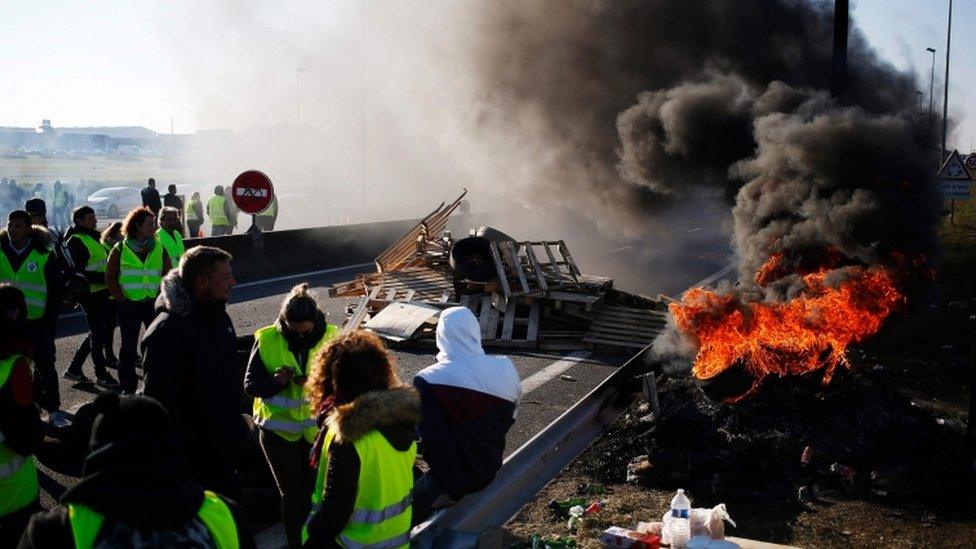
The blockades continued at several sites on Sunday
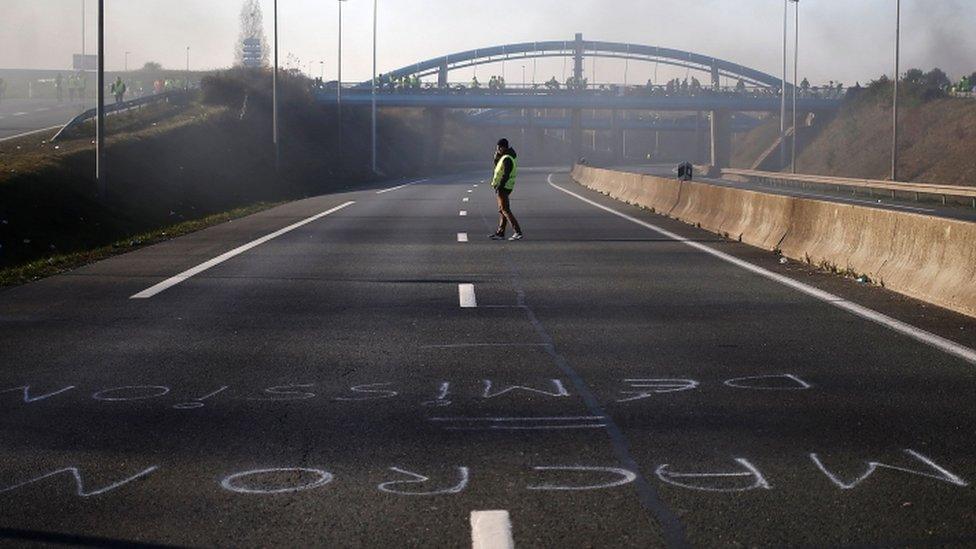
In northern Caen, protesters scrawled on the road urging President Macron to quit
About 3,500 people stayed out on Saturday in what Interior Minister Christophe Castaner called a "restive" night.
"There were assaults, fights, stabbings," he said. "There were fights among 'yellow vest' protesters. There was a lot of alcohol at certain venues, which led to this idiotic behaviour."
He said more than 400 people were hurt, 14 seriously.
Protesters remain at about 150 sites on Sunday, external, BFMTV reported.
Why are drivers on the warpath?
The price of diesel, the most commonly used fuel in French cars, has risen by around 23% over the past 12 months to an average of €1.51 (£1.32; $1.71) per litre, its highest point since the early 2000s, AFP news agency reports.
World oil prices did rise before falling back again but the Macron government raised its hydrocarbon tax this year by 7.6 cents per litre on diesel and 3.9 cents on petrol, as part of a campaign for cleaner cars and fuel.
The decision to impose a further increase of 6.5 cents on diesel and 2.9 cents on petrol on 1 January 2019 was seen as the final straw.
Mr Macron is currently in Germany for a day of national mourning for victims of war and his office said it would be inappropriate to discuss the protests while he was there.
- Published6 November 2018
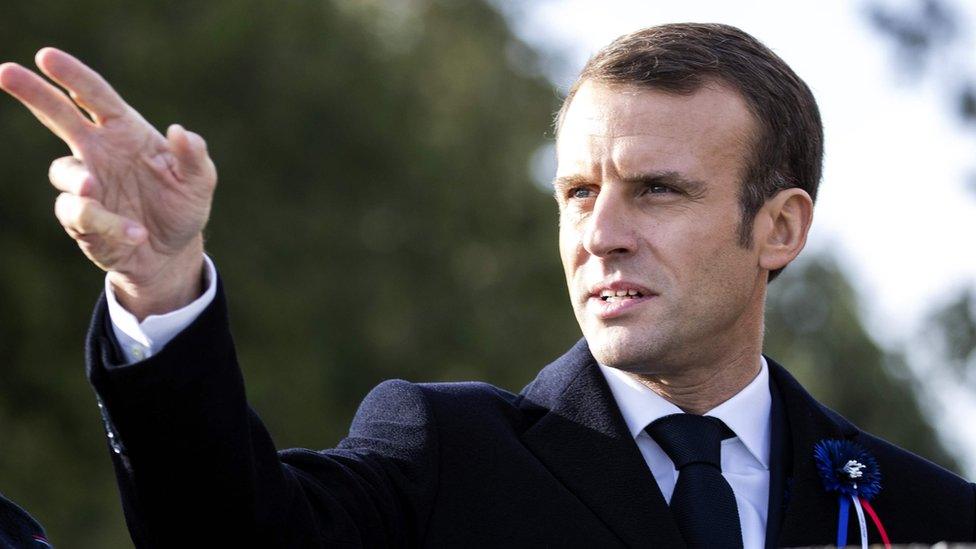
- Published18 September 2018
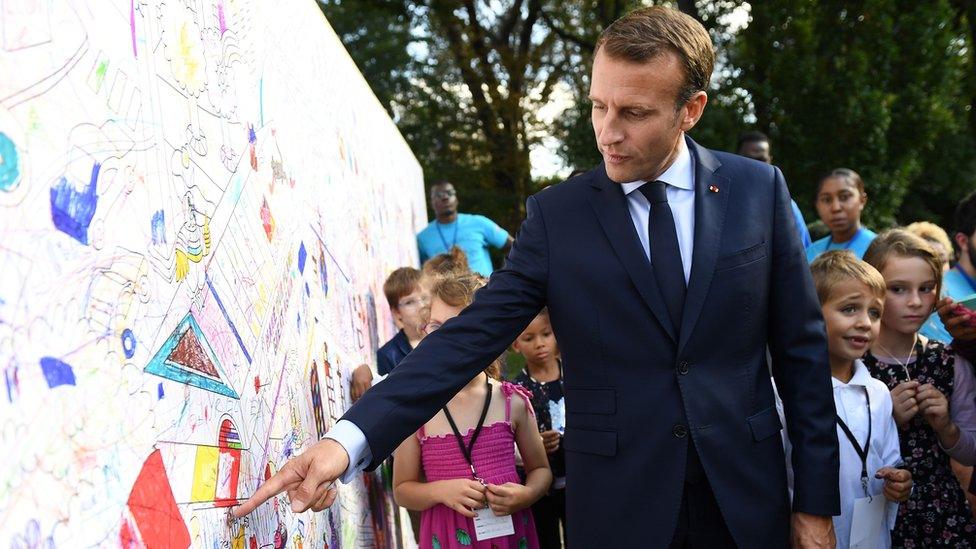
- Published30 August 2018
